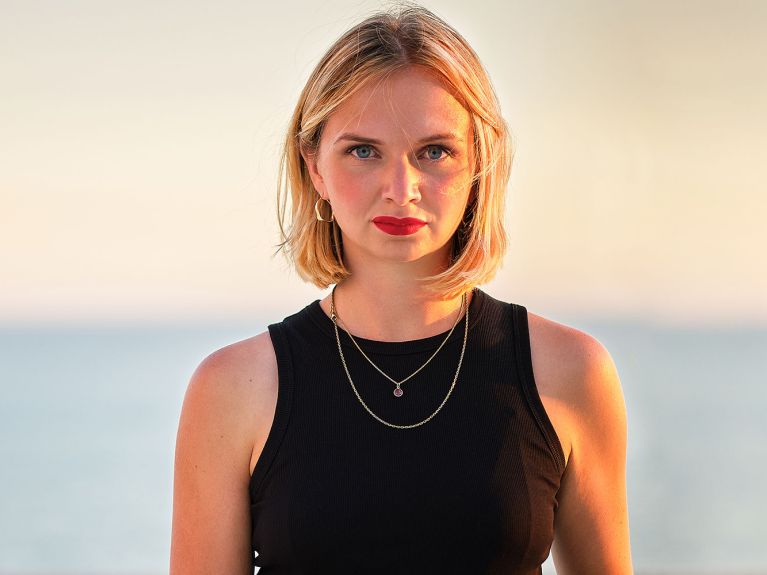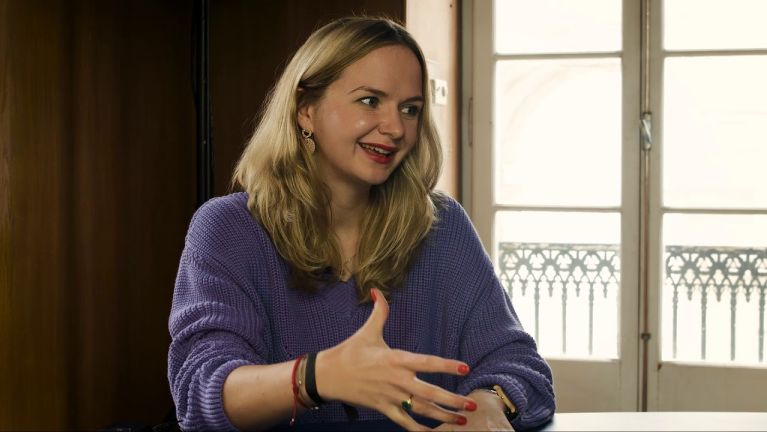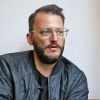The future of foreign policy
The feminist and activist Kristina Lunz wants to rethink foreign policy with a view to making the world a more feminist, fairer and safer place.

She has advised the United Nations, set up the Unidas women’s network for Germany’s Federal Foreign Office, and is co-founder and co-director of the Centre for Feminist Foreign Policy (CFFP). Now the German feminist, political scientist and activist Kristina Lunz has set herself some even loftier goals: to rethink foreign policy. All over the world, human rights and the rights of women and political minorities are coming under massive attack. According to Kristina Lunz, however, misogyny can be observed not only in the day-to-day politics of nation states, but increasingly often in established international organisations, too.
A feminist foreign policy involves dismantling patriarchal structures in foreign and security policy.
For feminism and peace
Via her “Centre for Feminist Foreign Policy” in particular, she is therefore fighting for a shift in mindset, for a new interpretation of what we mean by security, and for feminism and peace. “Power resources are currently primarily in the hands of privileged men. A feminist foreign policy involves wanting to dismantle these patriarchal structures in foreign and security policy”, Lunz said in a deutschland.de interview. She explained that this form of leadership also requires foreign policy to focus not on military strength but on human safety. The centre she founded intends to bring together leading thinkers and practitioners from the area of feminist foreign policy, to support grassroots projects and to stand up against global inequalities.
Utopias rather than realpolitik
Lunz also sheds light on the patterns of male dominance in her new book “Die Zukunft der Außenpolitik ist feministisch” (i.e. The future of foreign policy is feminist) and explains that a fair and safe world could be created if we succeeded in breaking through these patterns. She calls for more utopias rather than realpolitik and wants to question the status quo that has been in place for hundreds of years – the aim being to make foreign policy more human, effective and inclusive.
Dieses YouTube-Video kann in einem neuen Tab abgespielt werden
YouTube öffnenThird party content
We use YouTube to embed content that may collect data about your activity. Please review the details and accept the service to see this content.
Open consent form


